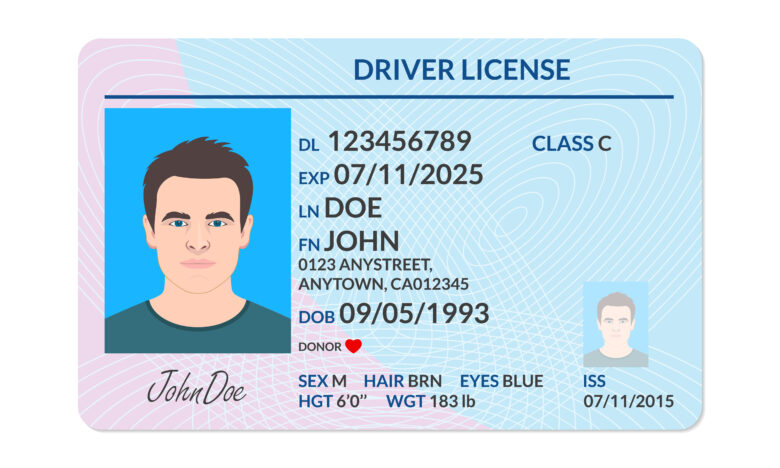Will a closer Sales and Compliance team be critical to signing more merchants?
Account Managers, Key Account Managers, Hunters, Farmers, and Sales executives are the breadwinners of any organisation. These so-called “hunters” or “goal scorers” are skilled at converting chances for their team against the backdrop of the “refereeing” or compliance rules. Whether it is a relentless door knocker of small and medium-sized businesses or a strategic high-profile seller to global Key Accounts, the organisational rules on onboarding are essentially the same.
Playing in the same team are the Risk and Anti-Money Laundering (AML) departments who are in-house referees umbrellaed under the Compliance team. Essentially their job is to translate or funnel the rules of the Regulators to the Sales teams inter alia. Some card payment firms allow their Salespersons the freedom to onboard the 360 process and others provide a Sales support layer behind the Sales team who administer the contracts once they are placed on the metaphorical conveyor belt. The jury is out as to the most effective methodology where debate is based upon issues around communication standards where Sales support may drop standards when seeking documents directly from clients vs efficiency in allowing the Salespersons to focus on the selling.
What is Compliance and Anti-money laundering?
So, who really cares about the rules?
In today’s thriving card payments sector the interaction between Compliance teams and Sales teams is at times fraught with tension. Communication is then pivotal to ensure equilibrium is reached in order not to disenfranchise your best Salespersons. Far too often compliance teams may be perceived as impeding on the ability of Sales teams to win new business. Similarly, Sales teams can be brushed with a win at all costs mindset and may require restraining.
The former is often cited as true in organisations where too much discretion is allowed within Compliance teams. In such circumstances, Compliance and Sales support staff can wield an artificial authority to frustrate the onboarding of specific sales colleagues should they choose to do so. Even in less cynical environments, too wide a discretion given to Sales support or admin staff may adversely impact consistency which may be counterproductive for organisations who seek the nirvana that is Six Sigma.
Compliance or Sales support teams that misconceive the AML or Risk rules are prone to frustrate potential wins of Sales teams and silently cull genuinely good sales opportunities. Silently, because the Salesperson’s voice is often drowned out by the aforementioned artificial authority sometimes wielded by onboarding whilst they joyfully make illogical decisions borne only from discretion and misinterpretation of the regulatory rules.

Conversely, Sales teams ought to be updated on the rules as if their mere existence depended on it and thus bear some responsibility in maintaining vocality so that the training is forthcoming. A highly trained Salesperson [on the rules] thrashes out, at source, any onboarding issues that may otherwise occur later in the process.
The Compliance teams bear greater responsibility and merely pushing buttons from a desk and emailing pdf presentations in the aloof and blanket fashion familiar to many Salespersons quite simply falls short. It could be argued that Sales teams probably care more about the rules simply because their financial livelihood depends on it though can be unable to execute due to the deprivation of training and discombobulation in communication from Compliance – as the old adage goes “crap in, crap out”.
The footballisation analogy – card payments

An appropriate analogy may stem from the football pitch. Salespersons can be deemed as the all-important strikers who are pivotal to the mere existence of the team i.e., no goals, no win. Compliance teams may be deemed as both attacking midfielders and defensive midfielders of the team. Compliance can be characterised as the attacking midfielders due to their role in providing goal-scoring opportunities for the Sales teams. They define the milieu in which Sales can win new business or upsell to existing business and without their pivotal support the Salespersons are of course at risk of losing deals.
Further, their defensive midfield role is at play as they aim to protect the organisation from losing business. Firstly, Compliance is of course key in rejecting genuinely non-compliant merchants, and secondly by interpreting the rules correctly and not unnecessarily and indirectly disabling Sales teams from signing good merchants. Any misinterpretation of the rules could cost the organisation in revenue especially if a competitor then goes on to sign the same business within the same regulatory rules.
Digitisation of onboarding is an example of where Compliance departments have leveraged technology to accelerate sales. The iPad onboarding of merchants began around 2013 and some card payments firms were slow to embrace that digital change in onboarding, particularly onboarding of small medium merchants tending to have simpler legal structures. Meanwhile, other competitors’ Compliance teams were quick to embrace the technology equipping their Sales teams with more efficient onboarding processes and reducing paperwork and time resulting in greater productivity.
A Salesperson’s perspective on compliance

Loopline media has sought insight from a veteran Salesperson who has been employed by various firms headquartered in the US, Germany, and the UK. He shares his views about his most recent experience working at the Frankfurt headquartered organisation namely Payone GmbH. Payone GmbH operates from Frankfurt, Germany with merchants within the United Kingdom. The company is owned by Worldline SA which is a France-based global card payments organisation. The company competes in a sector including Fiserv, Worldpay, Elavon, Barclaycard, and Concardis GmbH. Although Concardis GmbH is a major Payone competitor in their local market, Payone GmbH still faces fierce emerging rivalry from agile, disruptive, and refreshing relatively new players in card payments. Such new players share the technological character traits of the “Challenger Banks” who have successfully disrupted the retail banking industry. Such highly successful and customer-centric firms include Dutch headquartered players Mollie and Adyen.
The former Payone employee continued:
“I was based in the UK employed by Payone GmbH selling to merchants across the automated payments, fashion, and retail sectors within the so-called international team. Onboarding was always a challenge at the company due to the language barrier. Simple things like whether we needed to check a merchant’s original passport copy were not well communicated and for many years the UK onboarding team was happy to accept just photocopies without verifying the original documents. It did provide one less barrier to the onboarding process, but I found it different as two other payment companies I had worked for requested verification of originals. Some UK-based customers received billing in a foreign language which really pi**ed them off.
I was even asked to translate customer invoice on the internet and then forward it to the customer each month. I was concerned about the repercussions from a data protection viewpoint as to taking customer invoices to the internet and have since informed Payone of my worries, but they have not informed me of the actions they have taken about my compliance worries whilst at the company between 2016 and 2021.
In my opinion, it will take a long time for the older legacy payments companies to compete with the disruptors such as Adyen and Mollie who are relatively new agile less baggage-laden players in the industry. Having said that the traditional players like Payone GmbH, Worldline, and Elavon do have a tried and tested history and some merchants like to stick with what they are familiar with to an extent. One way the traditional players could expedite and keep up with the competition is to perhaps acquire small startups and perhaps utilise them as satellite subsidiaries leveraging their tech not only with compliance but also with products of course”
When asked to describe his onboarding experiences at Payone using the footballisation analogy, he said:
“Whilst at the company, I often had to play both the role of midfielder and striker simply because Payone were not well equipped for the match so as to speak perhaps because of nuances pertaining to the UK market differing from the German market from an onboarding perspective amongst others. It appeared that the Payone UK market entry into the UK in 2012 was not wholehearted which increased the workload for me in comparison to other colleagues working abroad. In my view, if both sales and compliance are willing to cooperate, they will be able to find a middle ground that will allow the business to execute onboarding in a transparent manner for all staff irrespective of location. I think Worldline’s 60% controlling stake in Payone offers a broadening of the company’s tunnel vision mindset and may yield some benefits; but I gather the technical integration may take too long to occur and the tier 1/2 retailers may just not have the commercial patience to stick around given that they are spoilt for choice with the likes of trending new players such as Mollie who have just recently announced their involvement in conversational commerce via the global cloud communication firm Vonage, to drive home my point on innovation ”
Why does the conflict happen?

A few factors contribute to the tension between the Compliance teams and the Sales teams. It all starts from the top of the compliance hierarchy at any organisation. The statutory legislation must be cascaded from Compliance leadership to the sales and onboarding teams in digestible chunks losing any unnecessary jargon.
An organisation must comply with all the pertinent rules and regulations which goes without saying. It is a challenge for Sales teams who are unfairly alluded to only be motivated by the need to achieve bonuses.
Many salespeople are aware and always strive to comply with compliance rules and consistent and real-time training will only be a winning formula.
Is this tension common among all sectors?
Healthy friction between Sales and Compliance teams will ensure that both constituents bring the best out of each other. A similar tension exists within the financial, medical, and health and safety sectors. As a consumer, think of the documents that you are asked to provide by a salesperson when seeking private medical care, insurance or even opening a gym membership. Think of scenarios when the documents required have been unclear or are inconsistent with your experiences with similar firms’. How did that make you feel?! Frustrated? Well, such inconsistency stems from Compliance teams and their training and communications shortfalls to the sales staff.
Now think of occasions where the experience has been clear and consistent and the documents you are asked to provide are sensible and match your experiences with other firms, perhaps whilst you are renting a car on holiday or buying property for instance. These are signs of a well-oiled machine stemming from the Compliance leadership cascaded efficiently to the salesperson.
Salespersons will at some point weigh up their goals of earning commissions against the need to meet compliance rules, and a successful balance is likely to strike a healthy relationship with the client. Tender and RFP processes are great insight and foresight for retailers and provide significant evidence of how painful or frictionless the onboarding process may be. RFPs can be won or lost based on decision-makers anticipating the smoothness of a global deployment across their retail estate.
Top tips

- Put your Salespersons first (please ignore!). Seriously though, trust your employees and keep things simple; they are the heart of your organisation so care for them. Provide Salespersons with up-to-date literature on the rules and regulations in a user-friendly format.
- Speak to potential merchants and ask questions about what the other payment companies are doing. Listen to the customers and where there are technical gaps look at prioritising those to keep your firm customer-centric.
- Consider digital onboarding platforms insofar as they are compliant and meet the regulatory rules. Often, the SME provides an appropriate environment or microcosm to utilise digital onboarding which can then be adjusted to the needs of the larger Key Accounts. Think of creating a login space where identification and other KYB/KYC documentation can be uploaded securely or verified, and where legal teams of your merchants can update data as employees and beneficial owners do move on.
- Provide a simple adjudication process to address anomalies and arguments between Salespersons, Sales support, and junior compliance employees. Again, such a process may be streamlined within a CRM portal with set service level agreements leveraging tech.
- Regularly meet with your sales teams to ensure that customer centricity is a pragmatic value and not only theoretical. Deep-lying departments must develop processes and procedures with the customer at the fore and not simply set internal goals. Too often, as described by the former Payone GmbH employee, systems are developed i.e invoicing systems without recognition that language adjustments will be required for customers abroad. Organisations are then at risk of violating customer data and data going AWOL via third-party translation tools. Payone GmbH was reprimanded in June 2021 by the Information Commissioner’s Office in similar circumstances where they sent confidential data to the wrong address.
- Collaborate and find a middle ground that will allow sales growth while remaining in full compliance with AML requirements. For instance, if a new rule stipulates that every customer must have original identity documents checked before a sale can be made, the compliance department ought to collaborate with the sales team to ensure that the latter fully comprehend the significance of this prerequisite, and the former understands the impact on the customer.
Final thoughts
One of the greatest midfielders to have played the beautiful game was former Manchester United icon, Paul Scholes. Former Barcelona player Xavi Hernandez once described Scholes as:
“..he can play the final pass, he can score, he is strong, he never gets knocked off the ball and he doesn’t give possession away..”
This perfectly describes the all-encompassing role that the Compliance teams ought to have within an organisation whether it be sales, data protection, or other areas of the business bound by statutory obligations. A failure to play that role will not only lose the battle in meeting regulatory requirements but also lose the battle on the sales pitch.
Loopline Media




